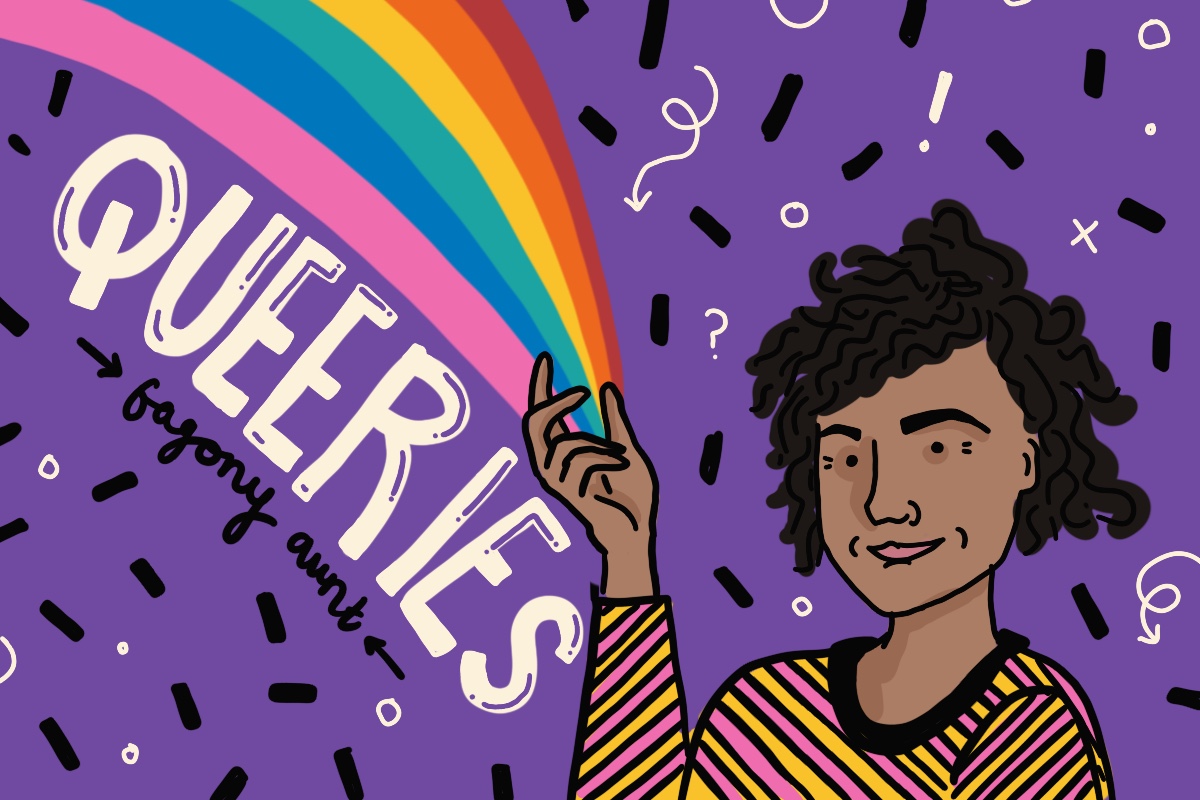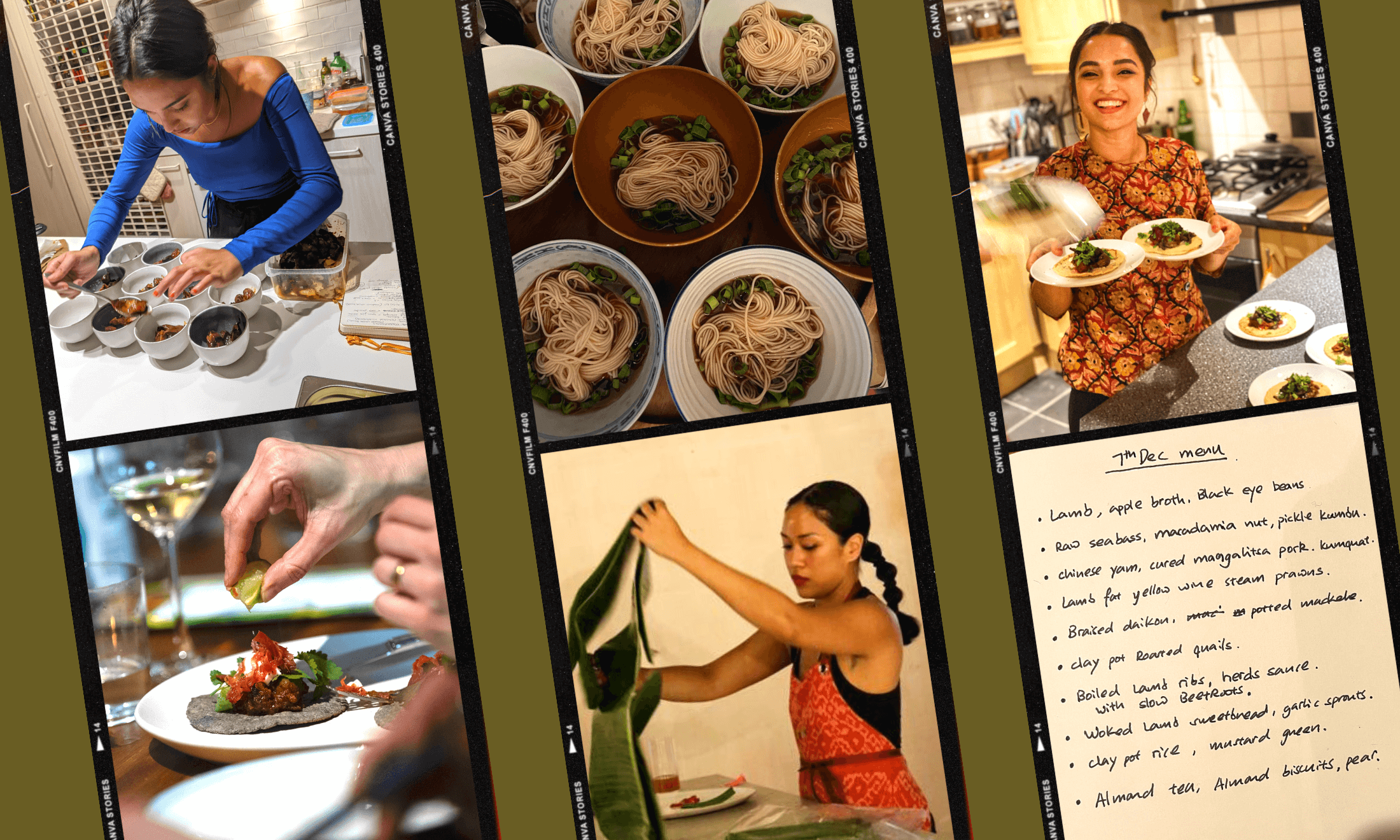
Queeries: meet Aisha Mirza, answering your questions on QTIBPOC life, health and desire
Aisha Mirza
13 Jan 2020
Illustration by Soofiya
Fagony Aunt Aisha Mirza answers your queeries about QTIBPOC health, love and life
Not gonna lie, I feel pretty blessed that years of chronic oversharing about my mental health have led to this point. And on that note, a bit about me. I was diagnosed with bipolar disorder in 2012, when I was 22, following my first psychotic episode during a trip to Glasgow. (I mention Glasgow because I appreciate details – not because it was Glasgow’s fault). I first started writing publicly about mental health about a year later, shortly after I moved onto a houseboat on the River Lea during a manic episode. This move, though less than ideal for the medical professionals in charge of my care at the time, gave me the space I needed to process, question, and unravel in peace.
The writing became part of an automatic ritual of survival and connectedness. If I, for some reason, had to experience what felt like this kind of otherworldly pain, then other people were going to have to hear about it – like, if I could be somehow witnessed in my misery, then perhaps I was still alive. That’s why it’s funny when people say – wow!! you’re so brave for talking about your mental health – coz I know that a) I have absolutely no choice in the matter and b) I love the attention ok!!
You realise pretty quickly after experiencing any kind of mental health crisis or trauma, that not everyone understands, cares or is helpful. That in fact, there is so little by way of education, conversation, public services or resources to help you and the people around you get through it. We’re conditioned from early to believe that gossip, attention-seeking and “oversharing” are bad “feminine” traits that indicate some kind of brokenness or insecurity and maybe sometimes they do but also maybe sometimes they’re ways of gaining knowledge and power. Maybe sometimes in a world that thrives on the shame-enforced silence of its oppressed people, a little bit of real talk can save lives. So let’s have it.
There is now more information than ever available about the psychic toll of trying to flourish in society as a woman, non-binary or agender person of colour, particularly for those of us who are disabled, queer, intersex, asexual, and/or trans. We now have some language to explain the fatigue of existing in a system that was never built to accommodate us, and in fact, incarcerates and hospitalises us at far higher rates than white people. We even have some language for the joy of finding ways to look after ourselves too.
While it can be empowering to learn that the discomfort you live with isn’t because you’re a wasteman but is actually –- at least in part –- an appropriate response to living in a hostile environment, this knowledge alone doesn’t fix everything. In fact, it can feel kind of lonely and overwhelming to have all these infographics about the toll of oppression while seemingly powerless to change anything. A fine place to start is finding or creating micro-communities for ourselves IRL and/or online, and filling these communities with people who understand our experiences, or at the very least believe and support us completely when we communicate them. Not to say that these communities will fix everything – no one thing does – but, unfortunately, humans need each other to survive and sometimes it can feel quite nice.
I feel unbelievably honoured and thrilled to answer your queeries over the coming months, and with your help, build a community database of shared knowledge and experience of health, love and life for queer and trans women and non-binary people of colour. It’s also a really beautiful full-circle moment for me, who eight years ago thought my life was over. (I also thought I was straight but that’s, potentially, another column). These days I only feel like my life is over approximately once every six weeks and you know what, I’ll take it.
“It’s important to me that you remember though, that you are the expert of your own life”
I am now trained in counselling skills, specialising in sexual assault, domestic violence and suicidality. I’ve worked in hospitals and NGOs in London and New York with people dealing with chronic mental health conditions, PTSD and addictions. More importantly, I have been a patient for many years of my life and will continue to be. I am that person, looking out of the window on the train and crying while eating an almond croissant. I am so excited to bring all these parts of myself to this column and to generate what I hope will be a healing conversation about whatever is on your collective mind. It’s important to me that you remember though, that you are the expert of your own life. No-one, no matter where they studied, what they say, or how much they love you, knows what you need or how you feel better than you do.
For many of us, we are the first generation in our families who have really had a chance to stop, reflect and seek the support we need to start repairing the trauma of lineages of poverty, racism, immigration, societal and intimate violence. I know for a fact that I’ve slept more in my life than all of the women in the history of my family put together, and is that an embarrassing truth to hold? Yes! Will I let it paralyse me with guilt? Yes but only sometimes! It’s a really beautiful and powerful thing to accept this work. To listen to our bodies, to rest when we’re able, to celebrate our victories without judgement – it is proof of our survival, against the odds.
This is part of the QUEERIES column







